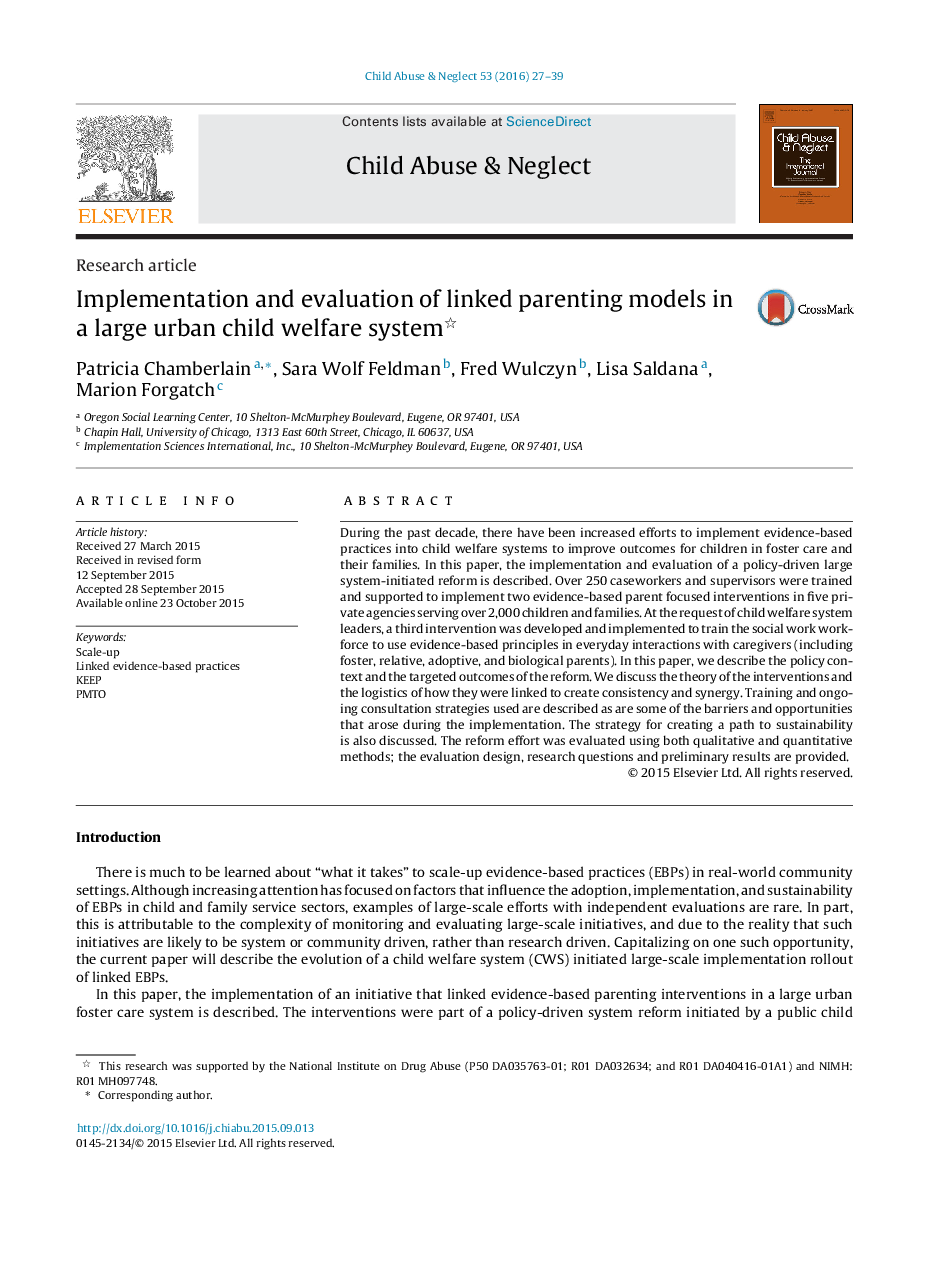| کد مقاله | کد نشریه | سال انتشار | مقاله انگلیسی | نسخه تمام متن |
|---|---|---|---|---|
| 344529 | 617426 | 2016 | 13 صفحه PDF | دانلود رایگان |
During the past decade, there have been increased efforts to implement evidence-based practices into child welfare systems to improve outcomes for children in foster care and their families. In this paper, the implementation and evaluation of a policy-driven large system-initiated reform is described. Over 250 caseworkers and supervisors were trained and supported to implement two evidence-based parent focused interventions in five private agencies serving over 2,000 children and families. At the request of child welfare system leaders, a third intervention was developed and implemented to train the social work workforce to use evidence-based principles in everyday interactions with caregivers (including foster, relative, adoptive, and biological parents). In this paper, we describe the policy context and the targeted outcomes of the reform. We discuss the theory of the interventions and the logistics of how they were linked to create consistency and synergy. Training and ongoing consultation strategies used are described as are some of the barriers and opportunities that arose during the implementation. The strategy for creating a path to sustainability is also discussed. The reform effort was evaluated using both qualitative and quantitative methods; the evaluation design, research questions and preliminary results are provided.
Journal: Child Abuse & Neglect - Volume 53, March 2016, Pages 27–39
